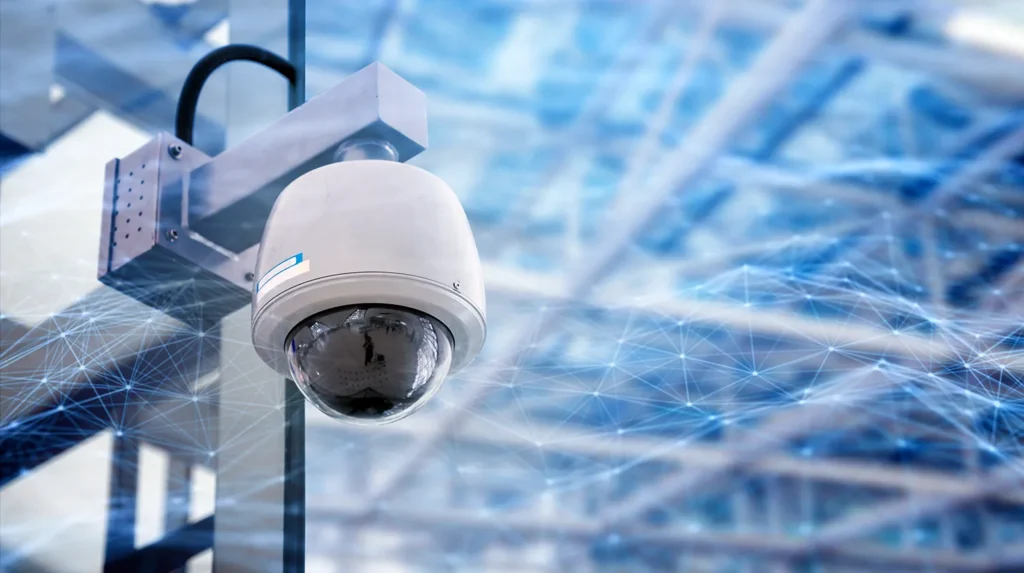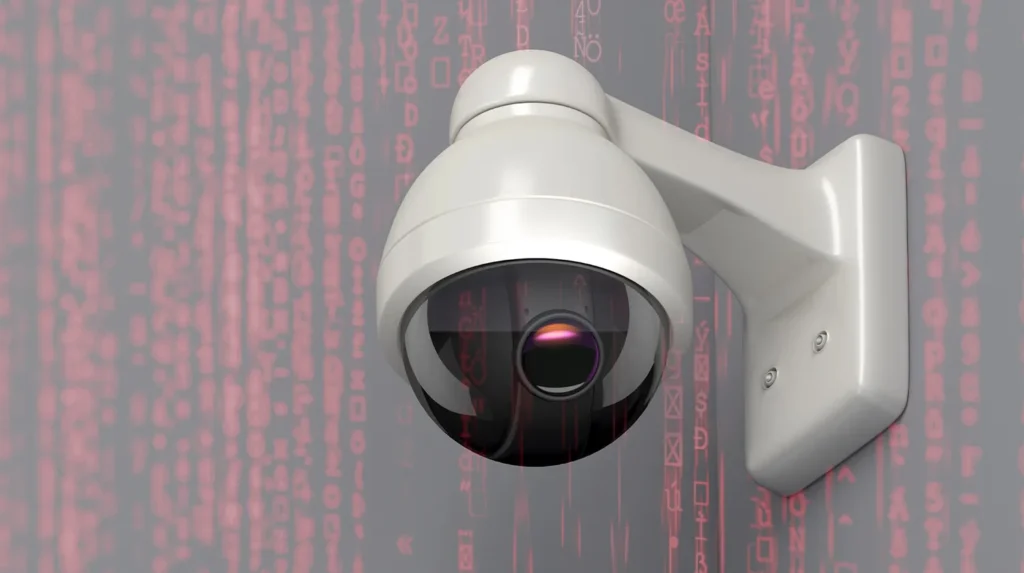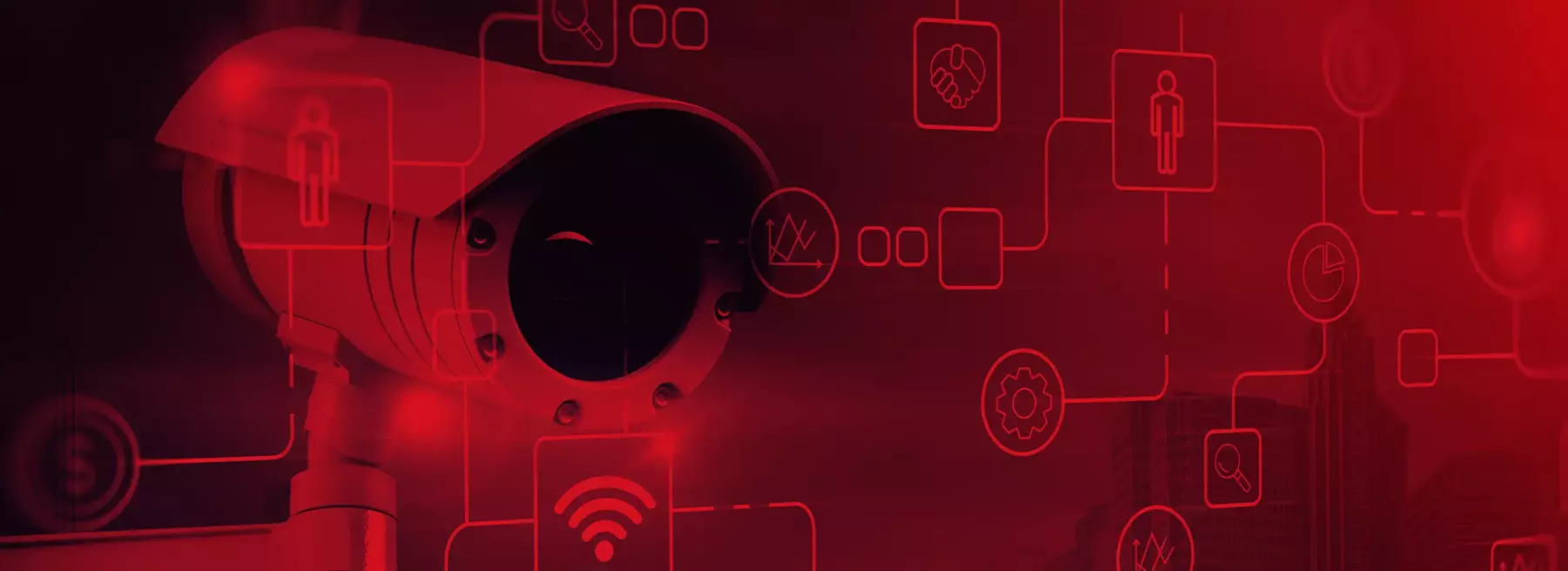Looking for the best business security camera? This guide covers the best business security cameras and their features and benefits to protect your premises.
Key Takeaways
- A full security camera system for business consists of cameras, recorders, and video management systems (VMS) that work together to protect your property.
- Choosing the right type of camera – dome, bullet, PTZ, or fisheye – is key to your surveillance needs and the area to be monitored.
- Maintenance, including inspections and software updates, is crucial for the performance and longevity of security camera systems.
Security Camera System for Business Components

A security camera system for business is made up of key components that work together to monitor a property. The components are cameras, devices that record, and video management systems (VMS). Each is important for recording, archiving, and viewing video to keep your business safe.
At the center of the surveillance system are the cameras that capture on-site or multi-location activity recordings. Devices such as DVRs and NVRs store those recordings for future viewing and allow for live monitoring of events as they happen.
VMS software links to your network’s security cameras to view video. All the bits work together to make a secure solution.
Cameras
There are cameras for different monitoring purposes. Dome cameras are popular for their discreet design and wide angle of view. They are also more tamper resistant. Bullet cameras are for long-distance monitoring with precise focus. They deliver high resolution and are best for specific areas.
PTZ (pan, tilt, zoom) cameras can move and zoom to cover large areas. Fisheye cameras that capture 360-degree panoramas can eliminate blind spots. This type of camera is largely dependent on the surveillance zones and level of detail required to monitor.
Recording Devices (DVR/NVR)
Security cameras rely on recording devices to store and manage the video they capture. For analog security cameras, Digital Video Recorders (DVRs) are used. They use BNC cables for recording. These units support D1 resolution – 720 x 480 pixels – but have limited expansion. Once all BNC inputs are full, a new DVR is needed.
Network Video Recorders (NVRs) store and manage digital video with features that often surpass those of their DVR counterparts. They can offer higher resolutions like full HD 1080p which is better video quality than traditional analog systems can provide. Check NVR compatibility with the intended IP camera models before buying.
For organizations that want flexibility during technology upgrades or migration, hybrid recorders are the way to go. They can support both legacy analog cameras and modern IP cameras at the same time. This allows businesses to phase in a full IP camera system at their own pace and continue to monitor without disruption.
Video Management Systems (VMS)
A Video Management System (VMS) is a powerful software tool that runs a video surveillance system. It’s for real-time monitoring but also for retrieving previously recorded footage to integrate with existing security cameras. With smart search that can find relevant footage quickly, a VMS can make the security system more effective.
These VMS solutions have video analytics that can recognize people or capture license plates – features that make a surveillance system more alert and effective. And they are ONVIF® compliant so it’s compatible with many security cameras. A VMS is an essential part of a video surveillance strategy.
Business Security Cameras

It’s important to choose the right security cameras for your business to get the best surveillance. There are many types of commercial security cameras, each for different situations. These are bullet cameras, dome cameras, panoramic cameras, PTZ cameras, and specialty cameras that are considered the best commercial security cameras because of their features and benefits. The introduction of commercial wireless security cameras has changed traditional CCTV systems, making them more accessible and affordable for many commercial applications.
Knowing which areas of the property to monitor can help you decide which type of security cameras to use for your business.
Dome vs. Bullet Cameras
In business security systems, two common camera types are dome and bullet cameras. Dome cameras are preferred for their discreet design and wide-angle view. They can cover more areas, making them perfect for indoor use. They are also more tamper- and vandal-resistant.
Bullet cameras are good for long-distance observation and can be mounted to walls or ceilings. They provide precise monitoring with clear and detailed images. This makes them good for outdoor use where close attention is needed for specific areas.
PTZ Cameras
PTZ cameras are great for monitoring large areas as they can be controlled remotely to pan horizontally, tilt vertically and zoom in on specific areas. This gives you a wide view perfect for monitoring big spaces like parking facilities, storage warehouses and open office environments that need maximum visibility.
With their adjustable movement and zoom features, PTZ cameras are versatile and effective and give full coverage in many scenarios.
Fisheye Cameras
Fisheye cameras are good for large indoor areas like retail stores, lobbies, and big open spaces. They can capture a 360-degree view of an entire area in one frame. This feature means no blind spots.
Their main advantage is continuous monitoring of the property. For businesses looking to upgrade their security and get full coverage, fisheye cameras are the way to go.
Wired vs. Wireless Security Cameras
When choosing between wired or wireless security cameras you need to weigh the pros and cons. Wired cameras provide more reliable connection, better image quality, and interference-free service. But they can be complex and difficult to install because of the amount of wiring required.
A wireless security camera system for business is easier to install, which is good for temporary or small spaces. They do require a stable internet connection for best performance. They are also prone to interference issues that can affect signal quality—an issue less common in commercial grade wireless security cameras.
Installation and Connectivity
Wired security cameras require physical cabling which takes time and effort to install. Despite the complexity of installation, these cameras provide a stable and reliable connection for continuous monitoring. PTZ cameras are more flexible as they can be controlled remotely to change the view and focus as needed.
Wireless security camera systems for business use internet connection to transmit video data which makes it easy to position them in many setups. Note that most security camera equipment can operate without the internet. This means a wireless system can have local storage management for more options when it comes to saving recorded footage.
Reliability and Performance
Hardwired camera systems are a robust surveillance solution because there is less chance of disruption from external sources. They can provide a steady and reliable connection with clear images which makes them good for properties that need continuous monitoring.
Wireless security cameras can experience interruptions from other electronic devices and environmental factors. Despite their ease of setup and flexibility, wireless cameras can have performance issues due to interference. This can compromise their reliability in some cases.
What to Look for in a Security Camera System for Business
There are many things to consider when choosing a commercial security camera system. High-resolution cameras can enhance the sharpness and details of the footage, so you can make out facial features while monitoring activity. Night vision is just as important for monitoring in low-light conditions.
Motion detection within the security cameras allows intelligent recording that only records when there is movement. This can save storage space by minimizing unnecessary recording.
Together with advanced video analytics, these features work together to create a total business security system for your property.
High-Resolution
Recording video footage with high-resolution cameras is important to identify people and events. The cameras are detailed and clear. With two million pixels, the 1080p HD resolution has more detail than lower resolution cameras.
Night Vision
IR LED-equipped business security cameras can capture clear video footage in low light conditions with night vision capability. This means 24/7 monitoring to deter criminal activity around the clock.
Motion Detection
Modern video management systems have motion detection feature that saves storage by only recording when movement is detected. This allows for quick notification and response to security threats.
Storage Options for Security Camera Systems

When it comes to continuous monitoring with business security cameras, having enough storage is key. There are multiple storage options including local storage, cloud-based solutions, and a combination of both – hybrid storage. Choosing the right one for your business ensures you get full coverage and quick access to video footage when you need it.
Local Storage
Businesses have full control and management of recorded footage with local storage. On-site storage requires IT professionals to manage storage devices. Their expertise is needed to keep the footage safe and accessible to the right people.
Cloud Storage
Cloud storage has many benefits for video surveillance systems. This includes remote access to footage, storing large amounts of data, and protection of recordings even if physical equipment is compromised or stolen. By removing physical storage space limitations, cloud storage allows for scalable video surveillance data management.
Hybrid Storage
By combining the benefits of local and cloud storage, hybrid storage systems offer a flexible approach to data management. They support IP-based and analog cameras which makes them ideal for companies moving to IP but want to leverage their existing analog setup.
Business Benefits of Security Cameras

Security cameras can do more than just deter theft and vandalism. They play a big role in business operations. They can trigger alarms, lock doors, and notify personnel even if they are offsite. Video analytics can detect unusual activity, send out alerts, and capture relevant footage – all in real time. Using this integrated approach can often give businesses quick ROI.
Employee Monitoring
Security cameras can improve employee behavior. Monitoring can enhance conduct and productivity, as employees will likely work more efficiently and effectively.
Customer Insights
Businesses are using video analytics to get insights into customer preferences and behavior. For example, by monitoring customer movement, businesses can arrange their layout to improve customer interaction. This data can be used for customized marketing and more attentive service which can increase sales and customer satisfaction.
Safety and Compliance
Surveillance cameras can maintain safety and compliance in the workplace. They are a deterrent to unwanted behavior and can document any suspicious activity. The recorded footage can be used during investigations or legal proceedings to settle disputes and prove compliance with safety protocols.
Selecting the Right Security Camera System for Your Business

When selecting a security camera system for your business, you need to assess your security needs and budget. You also need to identify critical areas that will be monitored like point-of-sale systems, entryways, storage areas, parking facilities, rooftops, back alleys, and any other common areas.
If this is outside your expertise it may be best to get professional help to get the best results and avoid costly mistakes.
Security Needs Assessment
Before choosing a video surveillance system you need to assess your security needs. Will your current wiring and network infrastructure support the camera systems? Do you know where to install the cameras and which ones will be best for that spot?
Again, hiring a professional to help with this process may be worth it to make sure everything is done right to get the best results.
Budget
There can be big upfront costs with a business security system. Determine what features you need and make sure you have a budget for that.
More expensive systems may have more features. Weigh the features against the cost to get long-term savings and efficient operation of the video surveillance system.
Benefits of Professional Installation
Investing in a video surveillance system is important for a business but its effectiveness depends on proper installation and monitoring. While some companies offer basic camera installation services, forward-thinking businesses are looking for total security solutions. Companies like Stealth Monitoring go beyond just installation and offer camera setup and remote video monitoring. This full-service approach means you’re not just capturing footage but also securing your property.
One of the biggest benefits of working with a full-service provider like Stealth Monitoring is the addition of remote video monitoring. Unlike traditional passive security systems, live monitoring uses trained professionals to watch cameras in real time and respond to suspicious activity. They can announce to intruders they are being watched via speaker and if needed, call local authorities. This proactive approach allows for immediate intervention during a security breach and can help deter crimes from happening in the first place.
Remote video monitoring can also help with operational efficiency and employee safety. With experts watching over your property, you can have peace of mind knowing your business is protected, potentially lower your insurance costs, and create a safer environment for everyone.
While there is a cost to install video surveillance systems, many of Stealth’s customers see ROI in months.
Security Camera System for Business Maintenance and Support
It’s important to maintain the security camera system for business to extend its life and performance. Regular checks can prevent damage from environmental factors and ensure the system is working properly.
Scheduled Inspections
Regular maintenance checks are important for the continuous monitoring and upkeep of business security cameras. Regular cleaning of the lenses can improve video quality and camera performance. Systematic checks can detect problems early to keep the cameras running continuously.
Stealth’s System Health Check monitors the key components of your security infrastructure – cameras, NVRs, hard drives, Internet connections, and on-site equipment to keep everything running optimally.
This health check doesn’t work in isolation. It works in conjunction with Stealth’s field technicians and service teams to maximize system uptime. The program can detect power supply, Internet connectivity, wireless network and camera failures. Every monitoring event and video review request is logged into a video management system for tracking and resolution. Technical issues and service requests are prioritized in a back-end tracking and ticketing system so critical issues get attention fast.
Software Updates
It’s important to keep your security camera software up to date for optimal performance and protection. Updates often include critical patches to protect against vulnerabilities and risks.
Technical Support
To keep your video surveillance system running requires professional technical support.
Stealth’s Total Service and Support is a full-service approach that doesn’t just protect your property, it watches over your entire surveillance system. From custom-built analytics software that checks equipment daily to operators monitoring in real time, Stealth’s multi-layered support system serves businesses of all sizes. It includes fast detection of technical issues, property-specific security protocols, video analysis, and 24/7 technical support.
By using internet-based remote services, Stealth can address issues often before an on-site visit is required. The result is a full security solution that can increase protection, improve camera uptime, and reduce costs with fewer field service calls.
Business Surveillance Legal Considerations
When setting up a surveillance system for your business, you need to consider legal considerations like privacy regulations and signage. Hidden cameras are restricted due to workplace privacy legislation. Businesses need to be aware of state laws to avoid legal issues.
Privacy Laws
Video surveillance is allowed in areas where there is no expectation of privacy, like public spaces. To be transparent you should post signs to let people know they are being recorded.
Some jurisdictions require businesses to notify people of hidden cameras, others allow them as long as they are clearly labeled.
Signage and Notifications
Signs must be displayed to both employees and customers to let them know surveillance cameras are in use to deter unwanted behavior. Announcements of monitoring help keep the environment open and transparent.
Increase Safety and Efficiency: Choosing the Right Business Security Cameras
Choosing the right business security cameras for your business requires several key elements. Investing in a full video surveillance system can help increase safety measures, streamline business processes, and maintain compliance and peace of mind for everyone on the property.
For more about what security cameras and solution are best for your commercial property, contact us.

